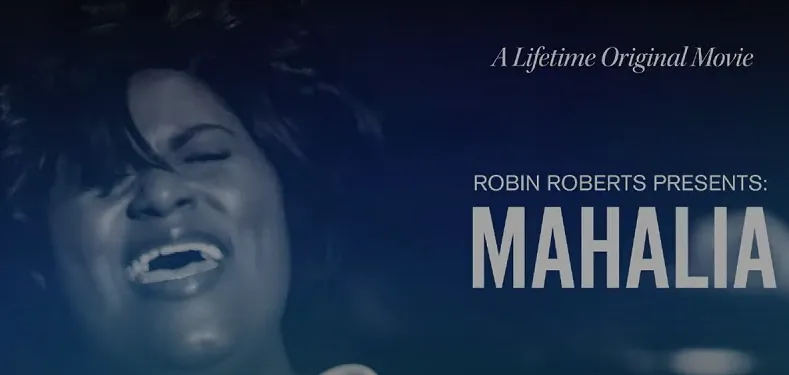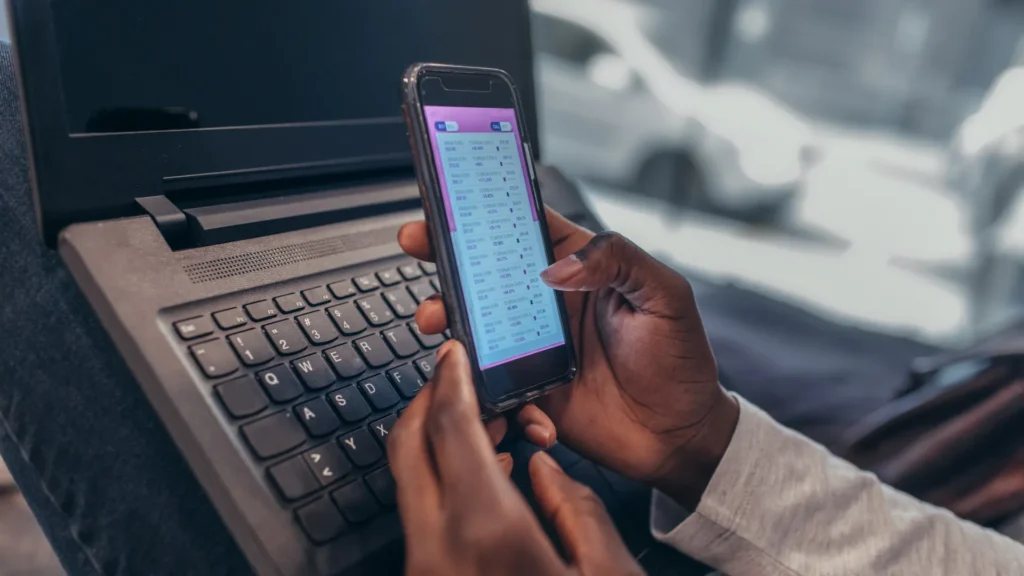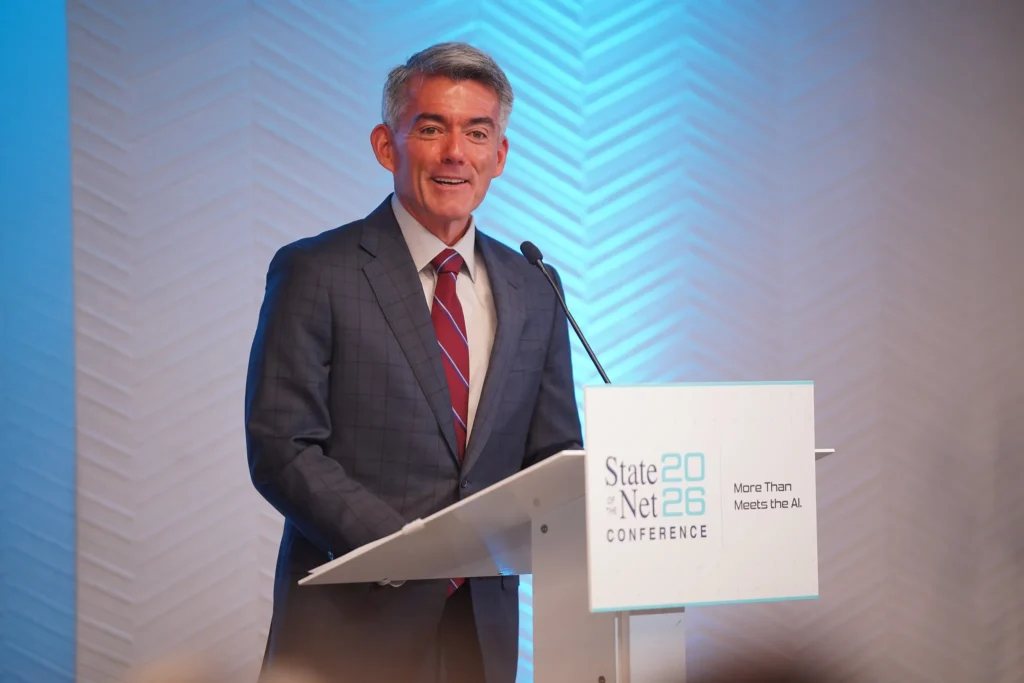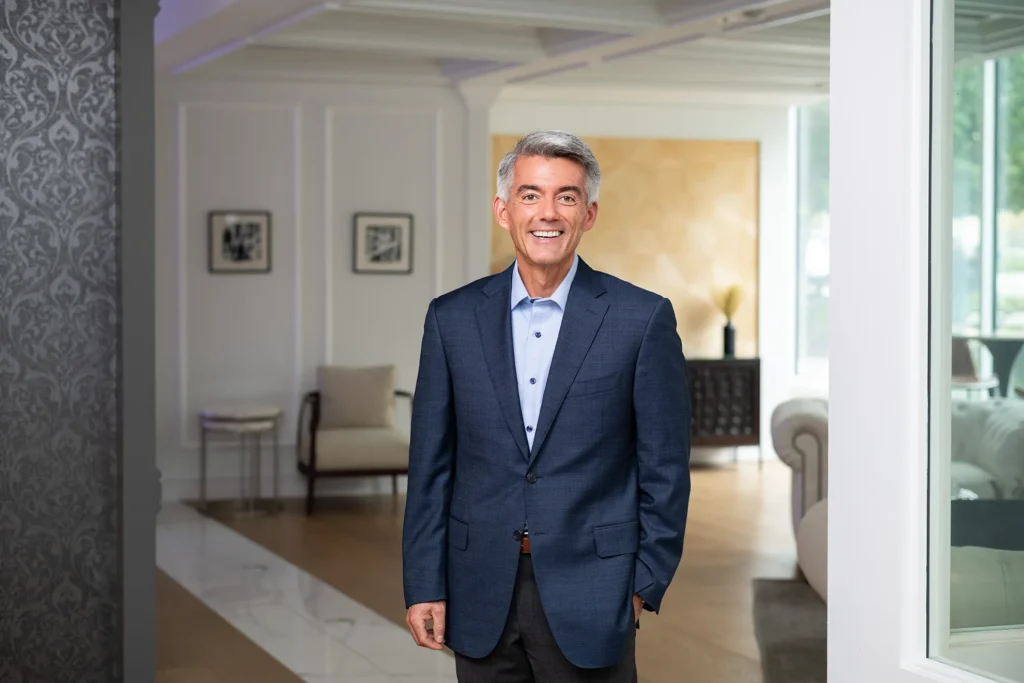Black History Month is well underway, but as NCTA noted last week, cable TV networks strive to lift the voices of the Black community through rich and diverse programming every day of the year. As the nation continues to wrestle with a reckoning over racial injustice, TV plays an influential role in educating audiences about the systemic racism rooted in American history, and in rallying efforts around racial equality. This week at CTAM’s portion of the virtual Television Critics Association press tour, critics got a sneak peek at a film that speaks to some of these issues, and heard a slice of what it took to bring the production to the screen. In the upcoming biopic, “Robin Roberts Presents: Mahalia,” Lifetime teamed up with the anchor of “Good Morning America” to retell the life and story of American gospel singer Mahalia Jackson. The biopic is the first project produced under a unique partnership that was established in 2018 between Lifetime and Roberts.
Jackson was a Black woman whose singing career met incredible success during a time of racial segregation in American history. She was a civil rights activist as well as a personal friend of the family of Martin Luther King, Jr. “[The film] explores her struggle to just be the best person that she can be on the planet, and that’s something all of us can learn from. So I was looking for that universal appeal,” said the film’s director, Kenny Leon. “Mahalia” covers 40 years of Jackson’s life, and as several of the panelists shared, the research and efforts that went into the production were a true labor of love.
In his preparation for the film, Leon dove into books about Jackson’s life, the history of Black theater in the U.S., the Tuskegee Airmen, and the works of influential Black writer James Baldwin. Leon explained that all of this reading was essential to painting an accurate picture of the time period and to capturing what Jackson symbolized for so many people. “So when people see this they will, of course, want to go and read more about her, but not just about her, about people that lived in the 1920s, 1930s, and 1940s,” said Leon.
Roberts shared that the film took longer to finalize for several reasons, one of them being COVID-19. “What I really appreciate about [working with Lifetime] is [that with them] it’s not about quantity, it’s about quality, and about taking our time to find the right stories. And we had this one, “Mahalia,” for a little over a year and we were just waiting for the right time,” she said. But while the pandemic slowed the production process down, Roberts was still grateful for the extra time it took to finalize the piece. She elaborated that, as a woman who was born in Tuskegee, Alabama, and as the daughter of a Tuskegee Airman, the first stages of the script needed some work. According to Roberts, the writing in the initial stages didn’t quite capture what Mississippi or Southerners “should sound like and talk like, especially people of color. And I wasn’t having that. There is a flavor to it and it’s one that I’m very proud of. It was very important to me to get the right tone.”
Roberts expressed gratitude for her partnership with Lifetime, which gave her the freedom and space to tell these types of stories. “Look, I love saying, ‘Good morning America.’ I love setting the tone for people in the morning. And to be able to inform people, enlighten people. But I needed to stretch another creative muscle.” [Roberts also produced “Tuskegee Airmen,” a documentary which premiered on the History Channel yesterday.]
Lifetime and the “Mahalia” production crew also directed energy towards ensuring the casting was exactly on point before moving forward. “I was like, ‘Who could play Mahalia? That slowed everything down. That’s somebody that I grew up with. My mother went to Howard University, and she was in the choral group … And I remember that iconic black and white picture of Mahalia, the big face and looking up. And I remember we had an old record player and she was always on it. So when Kenny said, ‘Danielle Brooks,’ … I get chills all over again just thinking about it … but that’s when we knew,” said Roberts.
Danielle Brooks, an actress and singer who starred in the Broadway production of “The Color Purple,” eagerly took the lead role of Mahalia. “I’m a very proud Southern woman. I come from South Carolina where Viola Davis came from, where Chadwick Boseman came from. I feel like I have a responsibility to match them. And yeah, it’s really an honor to get to tell this African-American story of what Kenny has described before as an ordinary woman who can do extraordinary things,” Brooks remarked. “I think we have to continue to remind people of that, not just about the power of Southerners, but of Black women. What we add to the fabric of America, where we come from: the Michelle Obamas, the Oprahs, the Tarana Burkes, and the list goes on. I’m glad to get to tell and remind people of that because people really don’t know Mahalia Jackson. And they should.”
Leon, who is a Black and Christian man from the south, commented that he was “destined” to tell the story of Mahalia: “I wanted it to speak to Americans during our time of COVID, our time of pandemic, our time of racial challenges in our country.” Leon added, “I think if our country is going to be saved, I think it’s going to be saved because of the nurturing of powerful, strong women. And as a Black man, I realize that now and I see it very clearly. Racism exists. We need to do something about it, and I’m proud to be in that army to continue to fight.”
“Robin Roberts Presents: Mahalia” premieres April 3 on Lifetime.









